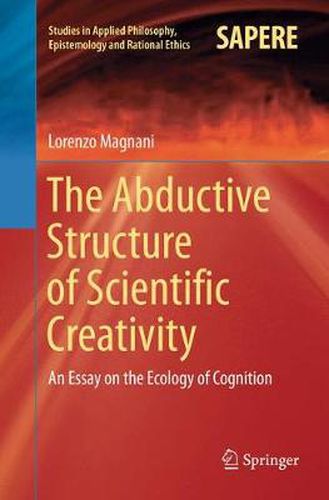Readings Newsletter
Become a Readings Member to make your shopping experience even easier.
Sign in or sign up for free!
You’re not far away from qualifying for FREE standard shipping within Australia
You’ve qualified for FREE standard shipping within Australia
The cart is loading…






This book employs a new eco-cognitive model of abduction to underline the distributed and embodied nature of scientific cognition. Its main focus is on the knowledge-enhancing virtues of abduction and on the productive role of scientific models.
What are the distinctive features that define the kind of knowledge produced by science? To provide an answer to this question, the book first addresses the ideas of Aristotle, who stressed the essential inferential and distributed role of external cognitive tools and epistemic mediators in abductive cognition. This is analyzed in depth from both a naturalized logic and an ecology of cognition perspective. It is shown how the maximization of cognition, and of abducibility - two typical goals of science - are related to a number of fundamental aspects: the optimization of the eco-cognitive situatedness; the maximization of changeability for both the input and the output of the inferences involved; a high degree of information-sensitiveness; and the need to record the past life of abductive inferential practices. Lastly, the book explains how some impoverished epistemological niches - the result of a growing epistemic irresponsibility associated with the commodification and commercialization of science - are now seriously jeopardizing the flourishing development of human creative abduction.
$9.00 standard shipping within Australia
FREE standard shipping within Australia for orders over $100.00
Express & International shipping calculated at checkout
This book employs a new eco-cognitive model of abduction to underline the distributed and embodied nature of scientific cognition. Its main focus is on the knowledge-enhancing virtues of abduction and on the productive role of scientific models.
What are the distinctive features that define the kind of knowledge produced by science? To provide an answer to this question, the book first addresses the ideas of Aristotle, who stressed the essential inferential and distributed role of external cognitive tools and epistemic mediators in abductive cognition. This is analyzed in depth from both a naturalized logic and an ecology of cognition perspective. It is shown how the maximization of cognition, and of abducibility - two typical goals of science - are related to a number of fundamental aspects: the optimization of the eco-cognitive situatedness; the maximization of changeability for both the input and the output of the inferences involved; a high degree of information-sensitiveness; and the need to record the past life of abductive inferential practices. Lastly, the book explains how some impoverished epistemological niches - the result of a growing epistemic irresponsibility associated with the commodification and commercialization of science - are now seriously jeopardizing the flourishing development of human creative abduction.